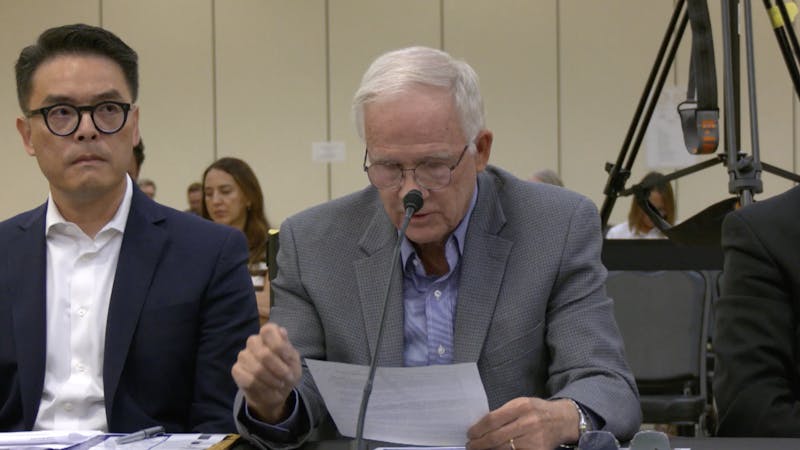International figures grace Rice with presence
Over the last week, Rice has been graced by the presence of a pair of highly-respected diplomats: Edrian Idrissov, Kazakhstan Ambassador to the United States, and Swashpawan Singh, former ambassador for India to the United Nations (see stories, pages 4 and 7). Meanwhile, it was announced that Muhammad Yunus, the 2006 Nobel Peace Prize winner, would be the commencement speaker at the 2010 commencement (see story, page 1).Even though the endowment may have dropped by double-digit percentages (see story, page 1), it is nice to see that Rice can still attract the kind of envoys and world leaders that make our university as prestigious as we've been led to believe. And yet that prestige was not on full show for Idrissov and Singh, who both spoke in college commons. Lacking the pomp and showmanship of the James A. Baker III Institute for Public Policy - and all the perceived intimidation that students may feel when they gape at the building's imposing beauty - the ambassadors were instead treated to the dining facilities for the university's students.
And it seems like it was a flying success. As such, we would recommend the continuance of this lecture series. Not only does it appear that students are more likely to attend, but we are also confident that those invited to speak are less concerned with their venue than with the expansion of their message. The more ears they can reach, the broader their message, and the greater the impact they can create.
More from The Rice Thresher

Rice announces Chao College as 12th residential college
Rice announced that the 12th residential college will be named Ting Tsung and Wei Fong Chao College Aug. 19. The college, set to open in fall 2026, will contain nearly 300 on-campus beds.
Dining access fund announced following on-campus unlimited meal swipes
Rice announced new food assistance programs on Tuesday to account for the controversial change in the on-campus meal swipe plan.

Rice disaster prediction model discussed at hearing on deadly Central Texas floods
The House and Senate Select Committees on Disaster Preparedness and Flooding held a hearing on July 31 in Kerrville to address the deadly July 4 flooding in Central Texas. The flooding along the banks of the Guadalupe River killed 108 people, including 37 children. In the charged hearing, Texas lawmakers and flood survivors criticized the local response to the disaster.


Please note All comments are eligible for publication by The Rice Thresher.